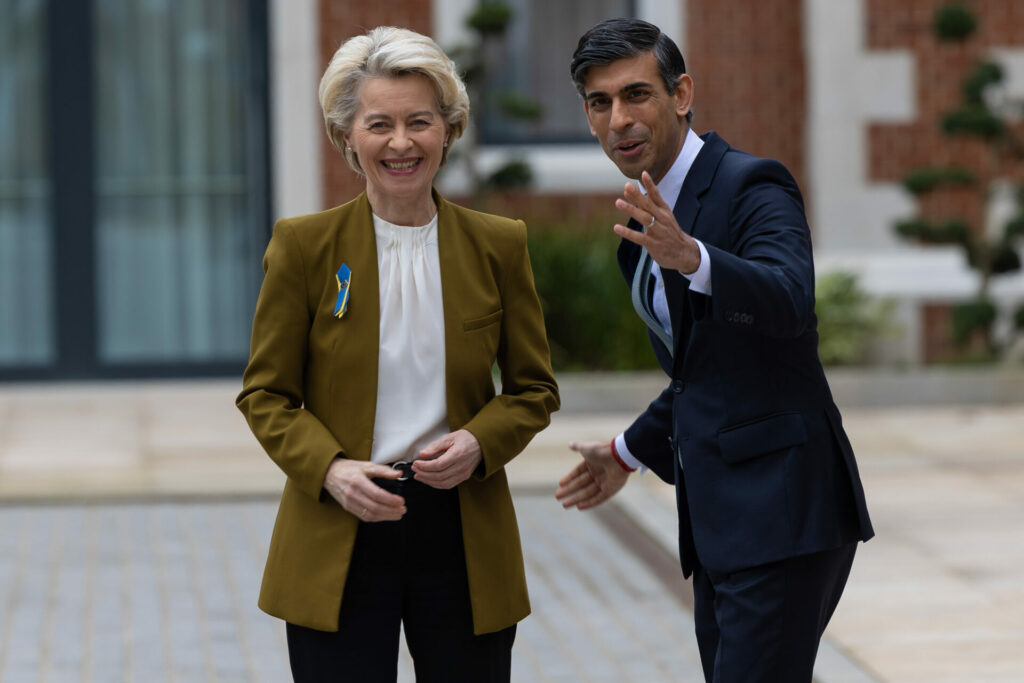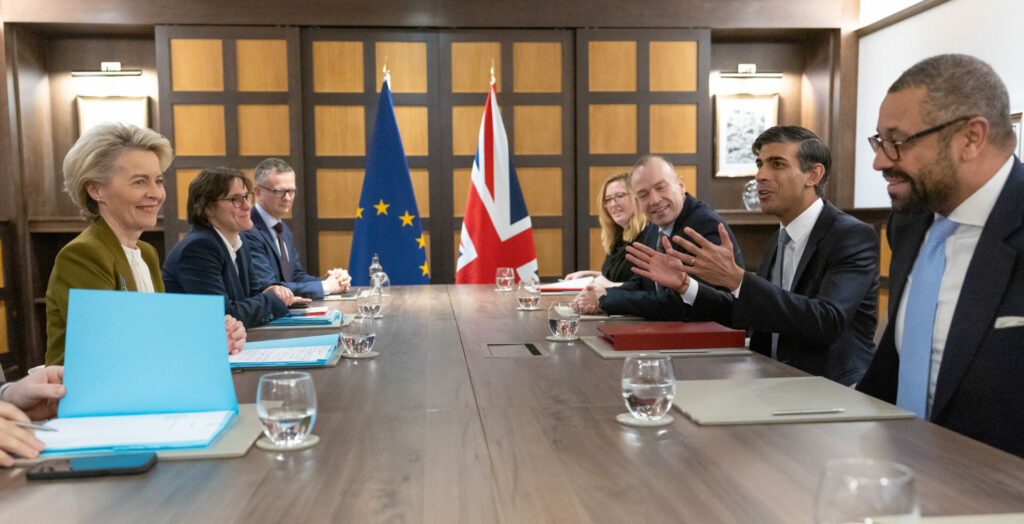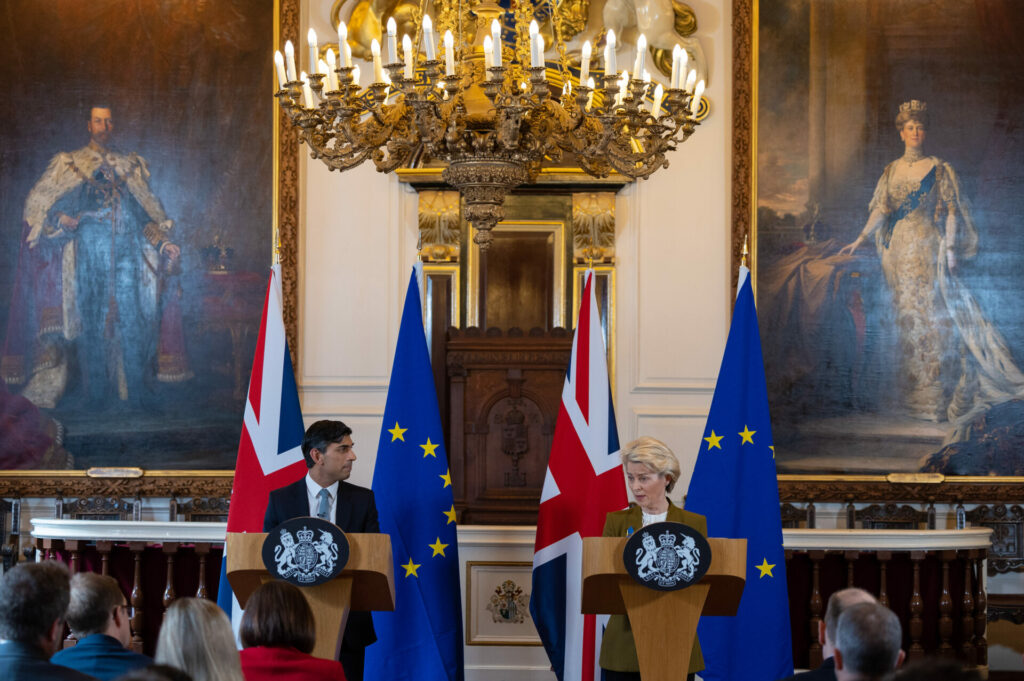European Commission President Ursula von der Leyen and British Prime Minister Rishi Sunak have agreed on a new deal to resolve the outstanding dispute on the status of Northern Ireland following Brexit. The agreement was announced in a joint press conference in Windsor, England, on Monday afternoon.
After four months of negotiations, a new deal on the Northern Ireland Protocol has now been struck. Sunak and von der Leyen announced the details at a press conference in Windsor, the home of the British Royal Family.
In a press conference, Sunak hailed “a decisive breakthrough: together we have changed the original protocol and are announcing the new Windsor Framework.”

British Prime Minister Rishi Sunak welcomes the President of the European Commission Ursula von der Leyen to Windsor to discuss the Northern Ireland talks. Credit: Simon Walker / No 10 Downing Street
The new deal will drop many of the regulations, forms and checks on goods between Britain and Northern Ireland. “There will be no sense of a border in the Irish sea,” Suank affirmed, in reference to a key unionist concern in Northern Ireland.
Lane system
Under the previous deal, Northern Ireland had remained under EU jurisdiction to avoid a hard border with the Republic of Ireland. Yet this meant that goods coming onto the island of Ireland had to be checked – creating a de facto sea border between Britain and Northern Ireland.
A system of lanes will now be applied to all trade coming from the British mainland into Northern Ireland. Items that are intended only for sale in Northern Ireland will pass through a green lane, bypassing the stricter controls necessary for EU imports. There will be a separate red lane for goods intended for or at risk of entering the EU via the Republic of Ireland.
Bureaucracy and customs for goods going through the green lane – including for postal packages – will be scrapped, Sunak stated.

Credit: Simon Walker / No 10 Downing Street
Another key element of the deal is that the UK government can apply tax changes to Belfast (NI) by setting its own VAT rates and excise duties. Previously, Brussels had the power to limit these decisions since Northern Ireland remains part of the EU single market.
Sunak also announced the Stormont break – an emergency mechanism that allows the Northern Ireland Assembly to stop new EU single market rules applying in Northern Ireland thanks to a power to what Sunak described as a "veto" accorded to the UK Government.
EU law will, however, still play a role in Northern Ireland, with the European Court of Justice (ECJ) having the ultimate say on any disputes. Sunak deemed this a price "worth paying" for Northern Ireland to stay in the EU single market. The ECJ's role also contradicts Sunak's words on the UK having a veto.
A new beginning
“The UK and the EU may have had our differences in the past, but we are allies, trading partners and friends. Something we have seen clearly as we have joined with others to support Ukraine. This is the beginning of a new chapter,” Sunak said, striking a more conciliatory tone than his predecessors.
When asked by Belgian newspaper Le Soir about the impact this agreement will have on science and research, von der Leyen stated that “This Windsor Framework is good news for scientists and researchers in the UK and EU.” The EU will begin the process of admitting the UK into the EU Horizon programme from the moment the deal is officially approved in the UK and comes into effect.
Related News
- UK and EU leaders expected to discuss Northern Ireland issue on Friday
- Brexit three years on: Who's celebrating?
Sunak now has to sell the deal to his own party and the ruling Democratic Unionist Party (DUP) in Northern Ireland, who have said they will “take their time” to look over the detail of the new deal. The deal will also be put to a vote in the British Parliament, Sunak confirmed.

